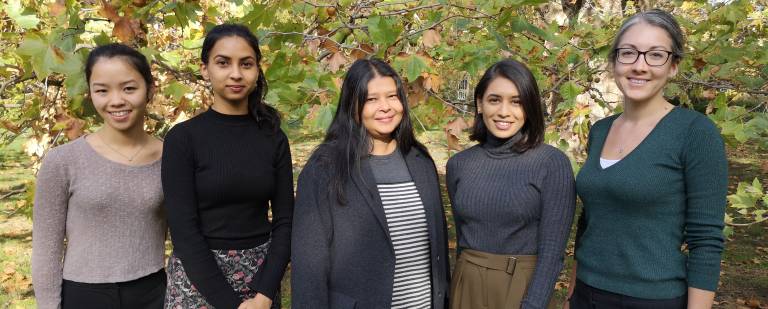
MITOCHONDRIAL RESEARCH GROUP
PI: Professor Shamima Rahman
Our Mitochondrial Research Group focuses on enhancing the outcomes for children with mitochondrial and other metabolic diseases by discovering mitochondrial disease genes, developing novel computational diagnostic strategies, and investigating therapeutic approaches where there are currently very limited, effective treatments. This work is leading to improved diagnosis and management.
Main Funding: GOSHCC, The Lily Foundation
Our current work focusses on the development of novel therapies for mitochondrial disease, whilst continuing our efforts to find new genetic causes and mechanisms for mitochondrial disorders presenting in childhood.
1. Molecular basis of mitochondrial disease
We have conducted a long-term project that has identified novel nuclear genes and gene variants responsible for human mitochondrial disease using an 'integrative genomics' approach. This includes detailed clinical and biochemical characterisation of patients (deep phenotyping), homozygosity mapping by high-throughput genotyping in consanguineous families, sequence analysis of candidate genes, high throughput 'next generation' sequencing methods, developing novel bioinformatics pipelines, and establishing multiple functional studies to prove pathogenicity of many disease-causing mutations identified in our laboratory. Using this approach we have discovered new disease genes, including a complex I assembly factor and genes needed for mitochondrial DNA maintenance, coenzyme Q10 biosynthesis and mitochondrial homeostasis. We have also elucidated new disease mechanisms such as our discovery that the JAK-STAT cytokine STAT2, a component of innate immunity, is a critical factor governing mitochondrial dynamics. We are now using multi-omics to investigate further the disease mechanisms underpinning the phenotypic complexity of mitochondrial diseases.
We have provided genetic diagnoses for hundreds of families referred from Great Ormond Street Hospital and further afield. This has increased the diagnostic rate from 5% 20 years ago to currently ~70% in a research setting. Gene discovery provides new insight into disease aetiology, which facilitates the development of new targeted therapies in the longer term.
2. Developing novel therapies
We have evaluated a number of small molecule therapies for mitochondrial disease, including vitamins and cofactors, decanoic acid, and nonsense readthrough agents. We are now commencing a gene therapy programme for these disorders.
 Close
Close


